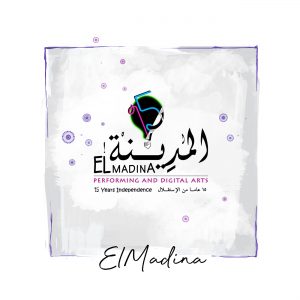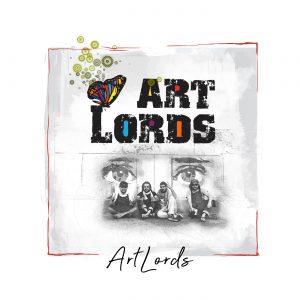UK government proposals to tackle online harms pose real risk to online freedom of expression
[vc_row][vc_column][vc_single_image image=”103235″ img_size=”full”][vc_column_text]The Rt Hon Jeremy Wright QC MP
Secretary of State for Digital, Culture, Media and Sport
100 Parliament Street
London SW1A 2BQ
6 March 2019
Re: Online Harms White Paper
Dear Secretary of State,
We write to you as civil society organisations who work to promote human rights, both offline and online. As such, we are taking a keen interest in the government’s focus on tackling unlawful and harmful online content, particularly since the publication of the Internet Safety Strategy Green Paper in 2017. In October 2018, we published a joint statement noting that any proposals are likely to have a significant impact on the enjoyment and exercise of human rights online, particularly freedom of expression. We have also met with your officials from the Department for Digital, Culture, Media and Sport, as well as from the Home Office, to raise our thoughts and concerns. With the publication of the Online Harms White Paper imminent, we wanted to write to you personally. A number of our organisations wrote to you about this last summer, and your office kindly offered to meet us. We would be very keen to meet in person, if that offer is still open.
While we recognise and support the government’s legitimate desire to tackle unlawful and harmful content online, the proposals that have been mooted publicly by government ministers in recent months – including a new duty of care on social media platforms, a new regulatory body, and even the fining and banning of social media platforms as a sanction – have reinforced our initial concerns over the serious risks to freedom of expression online that could stem from the government’s proposals. These risks could put the United Kingdom in breach of its obligations to respect and promote the right to freedom of expression and information as set out in Article 19 of the International Covenant on Civil and Political Rights and Article 10 of the European Convention on Human Rights, amongst other international treaties.
Social media platforms are a key means for tens of millions of individuals in the United Kingdom to search for, receive, share and impart information, ideas and opinions. The scope of the right to freedom of expression includes speech which may be offensive, shocking or disturbing. There is a real risk that the currently mooted proposals may lead to disproportionate amounts of speech being curtailed, undermining the right to freedom of expression.
Given this risk, we believe that it is essential for human rights requirements and considerations to be at the heart of the policymaking process. We urge the government to take a ‘human rights by design’ approach towards all legislation, regulation and other measures ultimately proposed. In particular, we make the following specific recommendations:
- First, the government must set out a clear evidence base in relation to any proposals put forward in the Online Harms White Paper. The wide range of different harms which the government is seeking to tackle in this policy process require different, tailored responses. Measures proposed must be underpinned by strong evidence, both of the likely scale of the harm and the measures’ likely effectiveness. The evidence which formed the base of the Internet Safety Strategy Green Paper was highly variable in its quality. Any legislative or regulatory measures proposed in the White Paper should be supported by clear and unambiguous evidence of their need and effectiveness.
- Second, we urge the government to fully to consider non-legislative measures before opting for regulation in this field. Other potentially highly effective options such as increasing public awareness and digital literacy, a curriculum and resource focus on digital skills in schools, promoting “safety by design” amongst tech product designers and developers, and supporting existing initiatives being undertaken, should be set out in the Online Harms White Paper.
- Third, greater transparency on the part of social media platforms and others involved in the moderation and removal of online content should be the starting point when it comes to any regulation being considered. Transparency should not simply focus on the raw number of pieces of content flagged and removed; it should instead more holistically require platforms to provide user-accessible information about the policies they have in place to respond to unlawful and harmful content, how those policies are implemented, reviewed and updated to respond to evolving situations and norms, and what company or industry-wide steps they have or are planning to improve these processes.
- Fourth, we strongly caution against proposals which attach liability to platforms for third party content, such as a binding Code of Practice, a new ‘duty of care’ or a new regulatory body. While well-meaning, proposals such as these contain serious risks, such as requiring or incentivising wide-sweeping removal of lawful and innocuous content. The imposition of time limits for removal, heavy sanctions for non-compliance or incentives to use automated content moderation processes only heighten this risk, as has been evidenced by the approach taken in Germany via its Network Enforcement Act (or NetzDG), where there is evidence of the over-removal of lawful content.(1)
- Fifth, we expect any legislative or regulatory proposals to contain explicit and unambiguous language on the importance of freedom of expression. It is vital that any legislative or regulatory scheme which seeks to limit speech explicitly references the human right to free expression so that this infuses how the scheme is implemented and enforced in practice. Such language should be set out both any legislation ultimately proposed, as well as any secondary legislation or regulatory guidance ultimately developed.
- Sixth, in recognition of the UK’s commitment to the multistakeholder model of internet governance, we stress the importance for all relevant stakeholders, including civil society, to be fully engaged throughout the Online Harm White Paper’s consultation period, and able to participate in the design and implementation of any measures which are finally adopted.
We appreciate your consideration of these points and look forward to continuing our engagement with your department as the Online Harms White Paper is published and throughout the policy process.
Yours sincerely,[/vc_column_text][vc_row_inner][vc_column_inner width=”1/3″][vc_column_text]Charles Bradley
Executive Director
Global Partners Digital[/vc_column_text][/vc_column_inner][vc_column_inner width=”1/3″][vc_column_text]Jodie Ginsberg
Chief Executive
Index on Censorship[/vc_column_text][/vc_column_inner][vc_column_inner width=”1/3″][vc_column_text]Jim Killock
Executive Director
Open Rights Group[/vc_column_text][/vc_column_inner][/vc_row_inner][vc_column_text]
1. See, for example, Scott, M. and Delcker, J., “Free speech vs. censorship in Germany”, Politico, 14 January 2018, available at: https://www.politico.eu/article/germany-hate-speech-netzdg-facebook-youtube-google-twitter-free-speech, and Kinstler, L., “Germany’s Attempt to Fix Facebook Is Backfiring”, The Atlantic, 18 May 2018, available at: https://www.theatlantic.com/international/archive/2018/05/germany-facebook-afd/560435/.[/vc_column_text][vc_basic_grid post_type=”post” max_items=”4″ element_width=”6″ grid_id=”vc_gid:1551880941891-44b3d529-2ac3-9″ taxonomies=”16927, 4883″][/vc_column][/vc_row]

 ElMadina for Performing and Digital Arts is a group of artists and arts managers who combine art and protest by encouraging Egyptians to get involved in performances in public spaces, defying the country’s restrictive laws.
ElMadina for Performing and Digital Arts is a group of artists and arts managers who combine art and protest by encouraging Egyptians to get involved in performances in public spaces, defying the country’s restrictive laws. ArtLords is a grassroots movement of artists and volunteers in Afghanistan who
ArtLords is a grassroots movement of artists and volunteers in Afghanistan who